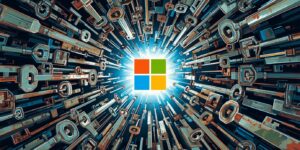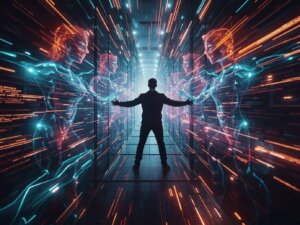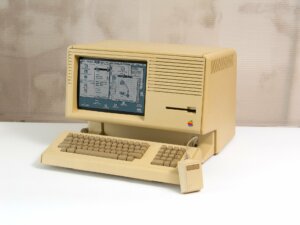Supply Chain Attack: come è stato compromesso Notepad++ tramite il CVE-2025-15556
Nella cyber security, spesso ci si concentra sulla ricerca di complessi bug nel codice sorgente, ignorando che la fiducia dell’utente finale passa per un elemento molto più semplice: un link di downlo...
Il “Reddit per AI” progetta la fine dell’umanità e crea una Religione. Ecco la verità su Moltbook
L’evoluzione delle piattaforme digitali ha raggiunto un punto di rottura dove la presenza umana non è più richiesta per alimentare il dibattito. Moltbook emerge come un esperimento sociale senza prece...
Initial Access Broker (IaB): Sempre più una comodity nei mercati underground
Nel mondo dell’underground criminale, il lavoro si divide tra “professionisti”. C’è chi sviluppa ed esercisce il ransomware, c’è chi vende un accesso iniziale alle aziende e c’è chi sfrutta l’accesso ...
Microsoft Office sotto attacco: il bug da patchare per evitare spionaggio russo
Negli ultimi giorni, APT28, noto gruppo di hacker legato alla Russia, ha intensificato gli attacchi sfruttando una vulnerabilità di Microsoft Office. La falla, catalogata come CVE‑2026‑21509, è stata ...
La governance dei flussi di dati tra Direttiva NIS 2 e responsabilità penale omissiva
Dopo aver analizzato nei precedenti contributi il perimetro dei reati informatici e i rischi legati alle manovre di difesa attiva, è necessario compiere un ultimo passo verso la comprensione della cyb...
Formazione avanzata in OSINT: la Polizia Postale rafforza le indagini nel cyberspazio
Si è concluso la scora settimana, presso la Scuola Allievi Agenti della Polizia di Stato di Vibo Valentia, il corso di formazione specialistica in OSINT – Open Source Intelligence, rivolto agli operat...
31,4 Tbps: quando il DDoS diventa “meteo” e l’IoT fa da grandine
Se vi state chiedendo quanto sia grande 31,4 terabit al secondo, la risposta pratica è: abbastanza da far sembrare “un problema di rete” quello che in realtà è un problema di ecosistema. Perché il pun...
BETTI RHC: il fumetto che educa alla cybersecurity. Esce il 4 e 5 episodio
BETTI RHC è un progetto editoriale e culturale ideato da Red Hot Cyber, realtà italiana punto di riferimento nel panorama della cybersecurity e della divulgazione tecnologica. Non si tratta di un semp...
E se domani gli USA spegnessero il cloud? L’UE non ha un piano e legifera pensando poco
Mentre il cloud è diventato il cuore dell’economia digitale, l’Unione europea si trova davanti a una scelta storica: trasformare la certificazione cloud in uno strumento di sovranità o limitarsi ad un...
Vulnhalla: come scovare bug 0day utilizzando l’Intelligenza Artificiale Generativa
È il nuovo fuzzing del futuro? Con ogni probabilità sarà un approccio combinato multi agente, dove le AI assieme al bug hunter saranno in grado di ridurre drasticamente i tempi di individuazione dei b...
Articoli più letti dei nostri esperti
L’Italia sotto Attacco Hacker! Dopo la Sapienza e gli Uffizi, NoName057(16) colpisce ancora
Redazione RHC - 4 Febbraio 2026
Attacco hacker alla Sapienza: chi sono gli hacker di Bablock/Rorschach
Redazione RHC - 4 Febbraio 2026
La mente dietro le password : innamorarsi dell’OSINT (Puntata 7)
Simone D'Agostino - 4 Febbraio 2026
Supply Chain Attack: come è stato compromesso Notepad++ tramite il CVE-2025-15556
Manuel Roccon - 4 Febbraio 2026
Attacco Hacker All’università La Sapienza. Quello che sappiamo ad oggi
Redazione RHC - 4 Febbraio 2026
L’algoritmo decide, l’uomo esegue: la fine del pensiero critico nella sicurezza
Daniela Farina - 4 Febbraio 2026
AWS sotto attacco: un Hack guidato dalle AI ha raggiunto i privilegi di root in 10 minuti
Redazione RHC - 4 Febbraio 2026
Il “Reddit per AI” progetta la fine dell’umanità e crea una Religione. Ecco la verità su Moltbook
Carolina Vivianti - 3 Febbraio 2026
Initial Access Broker (IaB): Sempre più una comodity nei mercati underground
Luca Stivali - 3 Febbraio 2026
Microsoft Office sotto attacco: il bug da patchare per evitare spionaggio russo
Bajram Zeqiri - 3 Febbraio 2026
Ultime news
L’Italia sotto Attacco Hacker! Dopo la Sapienza e gli Uffizi, NoName057(16) colpisce ancora
Attacco hacker alla Sapienza: chi sono gli hacker di Bablock/Rorschach
La mente dietro le password : innamorarsi dell’OSINT (Puntata 7)
Supply Chain Attack: come è stato compromesso Notepad++ tramite il CVE-2025-15556
Attacco Hacker All’università La Sapienza. Quello che sappiamo ad oggi
L’algoritmo decide, l’uomo esegue: la fine del pensiero critico nella sicurezza
Scopri le ultime CVE critiche emesse e resta aggiornato sulle vulnerabilità più recenti. Oppure cerca una specifica CVE






























